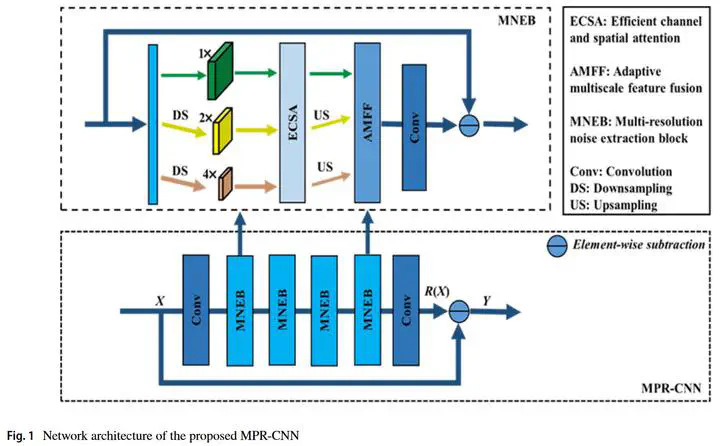Images denoising for COVID-19 chest X-ray based on multi-scale parallel convolutional neural network
 Image credit: Main-Structure
Image credit: Main-StructureAbstract
Chest X-ray (CXR) is a medical imaging technology that is common and economical to use in clinical. Recently, coronavirus (COVID-19) has spread worldwide, and the second wave is rebounding strongly now with the coming winter that has a detrimental effect on the global economy and health. To make pre-diagnosis of COVID-19 as soon as possible, and reduce the work pressure of medical staff, making use of deep learning networks to detect positive CXR images of infected patients is a critical step. However, there are complex edge structures and rich texture details in the CXR images susceptible to noise that can interfere with the diagnosis of the machines and the doctors. Therefore, in this paper, we proposed a novel multi-resolution parallel residual CNN (named MPR-CNN) for CXR images denoising and special application for COVID-19 which can improve the image quality. The core of MPR-CNN consists of several essential modules. (a) Multi-resolution parallel convolution streams are utilized for extracting more reliable spatial and semantic information in multi-scale features. (b) Efficient channel and spatial attention can let the network focus more on texture details in CXR images with fewer parameters. (c) The adaptive multi-resolution feature fusion method based on attention is utilized to improve the expression of the network. On the whole, MPR-CNN can simultaneously retain spatial information in the shallow layers with high resolution and semantic information in the deep layers with low resolution. Comprehensive experiments demonstrate that our MPR-CNN can better retain the texture structure details in CXR images. Additionally, extensive experiments show that our MPR-CNN has a positive impact on CXR images classification and detection of COVID-19 cases from denoised CXR images.